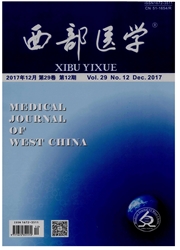

 中文摘要:
中文摘要:
目的探讨Calpain(钙蛋白酶)在ROS介导的心肌细胞损伤中的作用。方法原代培养的成年小鼠心肌细胞分为3组:对照组;H2O2组(用25μM H2O2处理原代培养的成年小鼠心肌细胞3h来模拟ROS介导的心肌细胞损伤);PD+H2O2组,H2O2处理前用20μM PD150606(Calpain抑制剂)预处理心肌细胞30min。检测各组细胞的存活率、Calpain活性、caspase-3活性、细胞色素C的释放以及Ca2+浓度的变化情况。结果与对照组相比较,H2O2组的细胞存活率下降;Calpain及caspase-3活性增高,细胞色素C的释放以及细胞内Ca2+均明显增加(P〈0.05)。然而,用PD150606预处理细胞30min能抑制H2O2引起的上述变化。结论 Calpain活化在ROS介导的心肌细胞损伤中可能具有重要作用。
 英文摘要:
英文摘要:
Objective To investigate the role of Calpain in reactive oxygen species(ROS)-mediated cardiomyocyte injury.Methods Primary cultured adult mouse cardiomyocytes were randomly divided into the three different groups: a control group;the H2O2-treated group in which cardiomyocytes were treated with 25μM H2O2 for 3 hours;and the PD+H2O2 group in which cardiomyocytes were pretreated with 20μM PD150606,a Calpain inhibitor,for 30min prior to H2O2 treatment.Cardiomyocyte survival,Calpain activity,caspase-3 activity,cytochrome c release,and intracellular Ca2+ concentrations were determined in these groups.Results In the H2O2-treated group,the survival of cardiomyocytes significantly decreased,and the activity of Calpain and caspase-3,as well as cytochrome c and Ca2+ concentrations were significantly increased compared to the control group(p0.05).However,these effects of H2O2 on cardiomyocytes were alleviated by pretreatment with PD150606.Conclusion Calpain activation may play an important role in ROS-mediated cardiomyocyte injury.
 同期刊论文项目
同期刊论文项目
 同项目期刊论文
同项目期刊论文
 期刊信息
期刊信息
